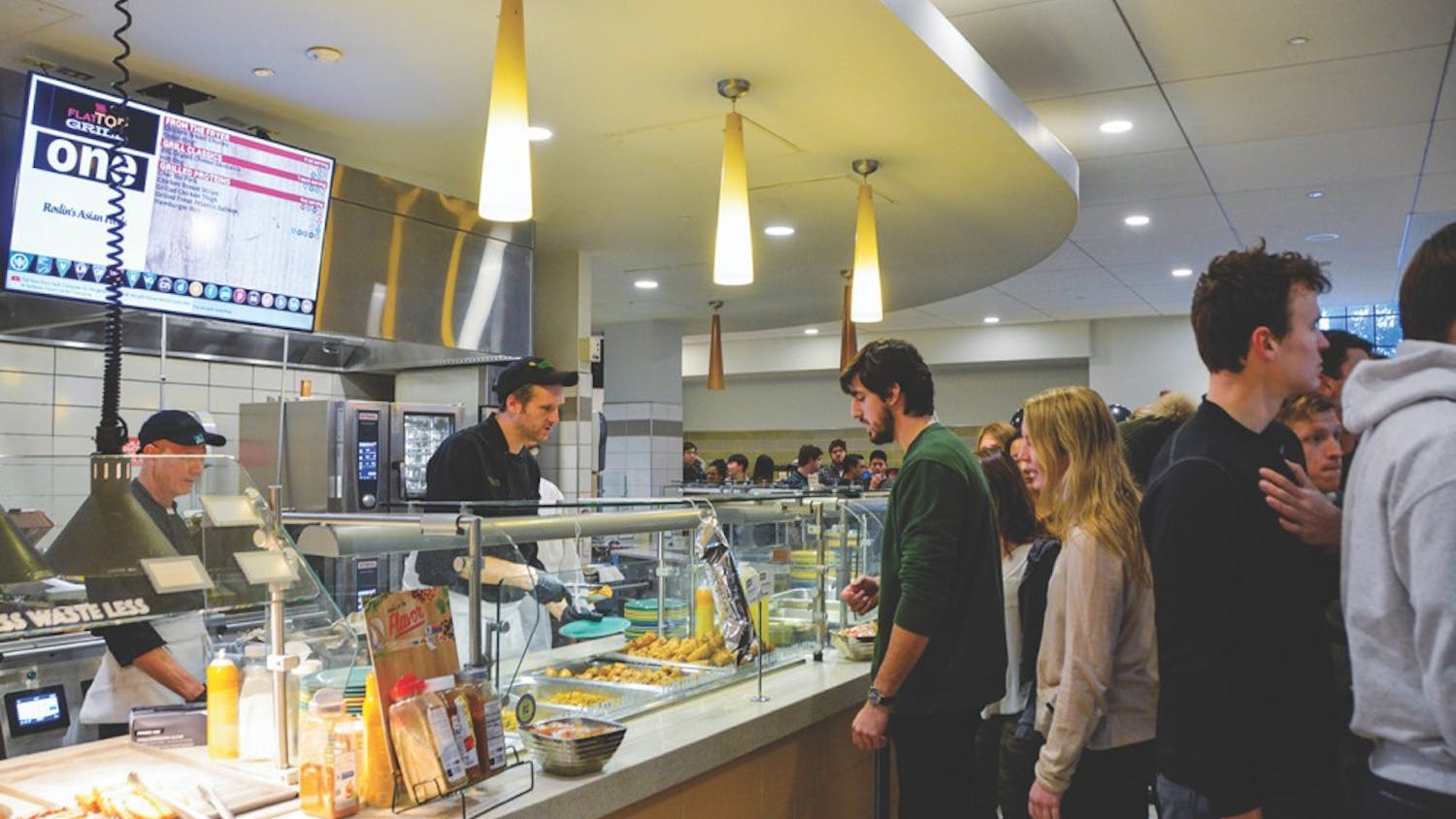As this newspaper reported last Friday, Dartmouth Dining Services has decided to eventually implement biometric scanners at the Class of 1953 Commons, the College’s main dining hall. Jon Plodzik, the head of DDS, extolled the virtues of scanners at the entrance, calling the technology a “game changer” that would reduce lines at ’53 Commons. What’s more, Plodzik justified the presumably expensive scanners as a means to ensure “better utilization of resources.”
If “better utilization of resources” is DDS goal, then perhaps it should look elsewhere. Few students at the College have ever had much trouble with the line at ’53 Commons; during a busy mealtime, students might need to wait a few jarring minutes, or perhaps a couple more on an exceptionally busy day. Ask most students here, and they might wish for shorter lines at Collis or Novack Cafes, where lines can stretch on for 15 minutes or even longer. Or they might even tell you that the lines aren’t the biggest problem they have with DDS, pointing instead to the inflated food prices — as this paper reported last Tuesday, many items sold by DDS at Collis Market cost over twice as much as they do in the Hanover CVS.
All students at Dartmouth must purchase a meal plan with the College. These range in price, but for on-campus students, the cheapest option still comes in at a whopping $1,900 per term, or $27 per day. Compare that to the average American. In a 2012 Gallup survey, American households reported spending an average of $151 per week on food. Since the average 2012 American household size was 2.55 people, that means that Americans spend roughly $8.46 per day per person on food. Why, then, does DDS require students to pay over three times more than that?
The reason why DDS charges so much — why it fails to respond to student concerns and focuses on projects like biometric sensors — is likely because it doesn’t have to deal with competitors, and is therefore operating with incomplete information inputs from its customer base. It’s easy to end up thinking that a biometric scanner system would be an excellent innovation because DDS doesn’t have a mechanism for receiving widespread feedback on what it is that actually makes a dining experience enjoyable for students.
At best, implementing a biometric scanning system might make wait times marginally better at the one dining hall with the least-bad line problem. At worst, the proposal raises legitimate concerns about the tendencies for biometric systems to end up reinforcing discriminatory patterns among minorities — and while the proposed system for ’53 Commons does not directly implicate those problems, they reasonably suggest a desire to expand such systems throughout campus, which is cause for concern.
DDS responds to student needs and priorities about as effectively as any organization that gets relatively minimal feedback from the people who interact with it; that is to say, exceedingly poorly. Again, that’s not to fault the excellent staff of DDS, who do their best to make this broken system work for the student body. But in the end, the fact that DDS doesn’t have to worry about competitors for student dining dollars — whether or not you believe that a deregulated dining system would be any better — means that they lack an effective mechanism for testing whether their customers are truly pleased with the way the business is run.
The case of the ’53 Commons biometrics system is an example of the misguidedness resulting from the isolated nature of DDS operations. While lines during the busiest terms have certainly gotten longer as freshman class sizes have increased, biometrics aren’t the solution. All they do is raise fears of surveillance and targeting among vulnerable populations — any shortened wait times would be marginal at best.
As this Editorial Board has previously argued, the College has a whole host of options available for improving quality of life on campus, especially when it comes to food options. It could allow meal plans to transfer over to local restaurants and grocery stores; they might also consider the implications of increasing class sizes on the facilities available to serve them; it also would be worthwhile to investigate methods to expand or improve the facilities at the Collis Cafe. There are a number of improvements this campus needs desperately, and many others that could make life smoother for everyone involved. Biometric scanners are not among them.
The editorial board consists of the opinion editors, the executive editor and the editor-in-chief.


